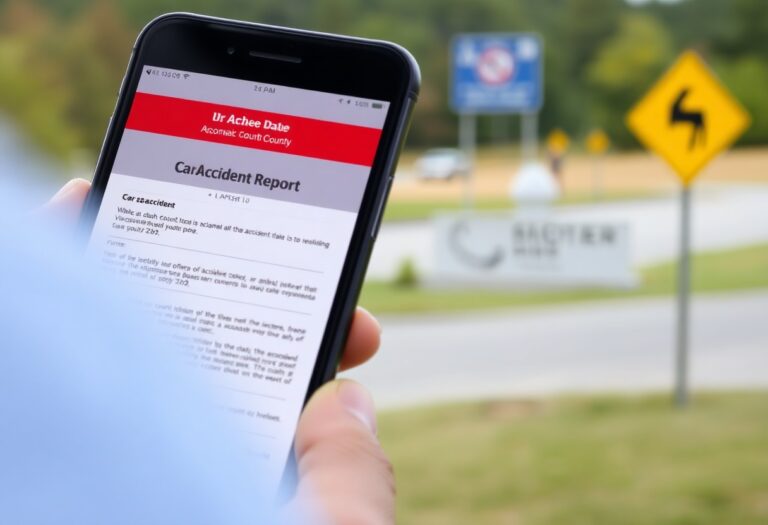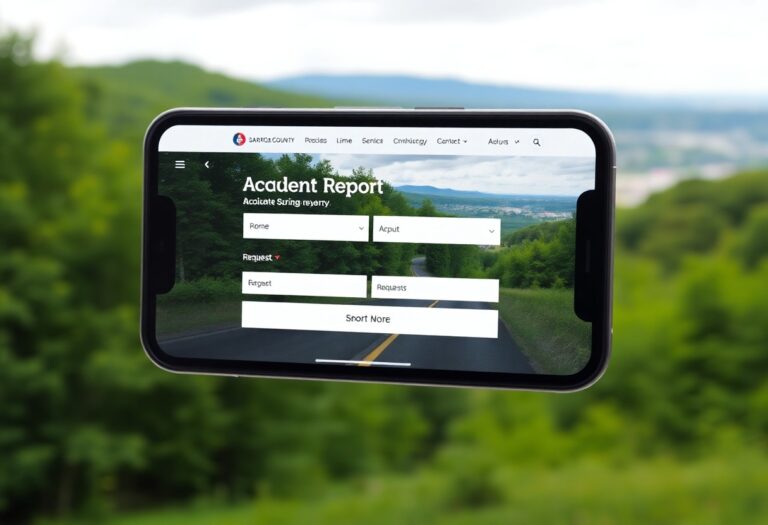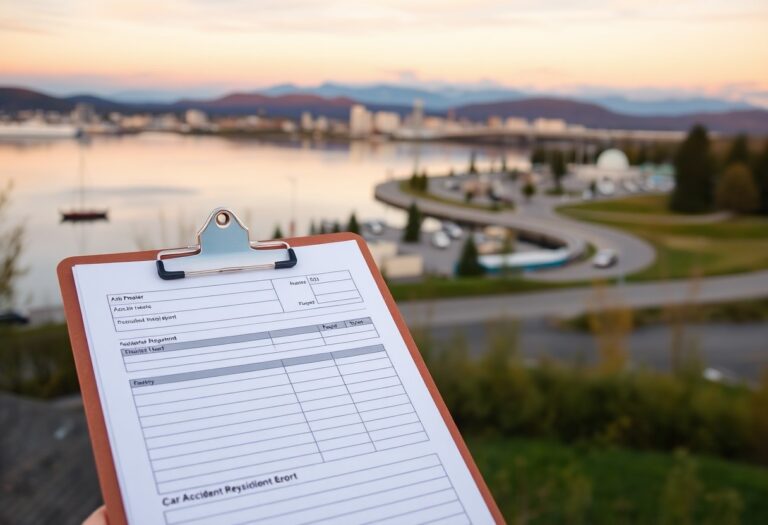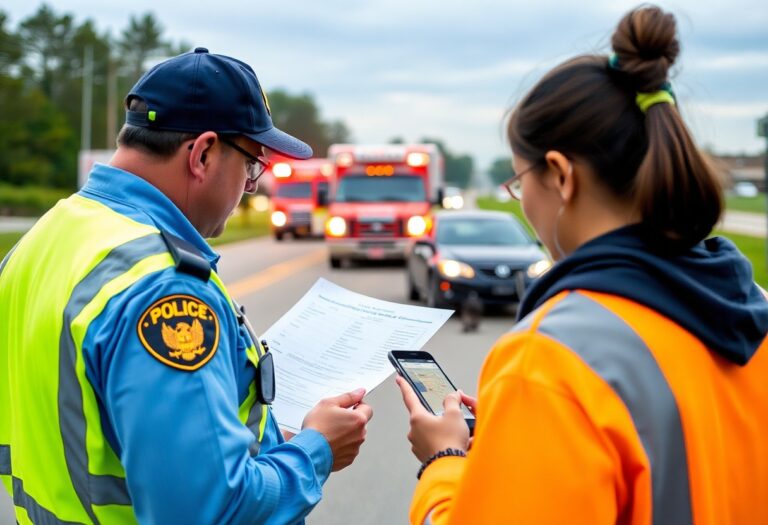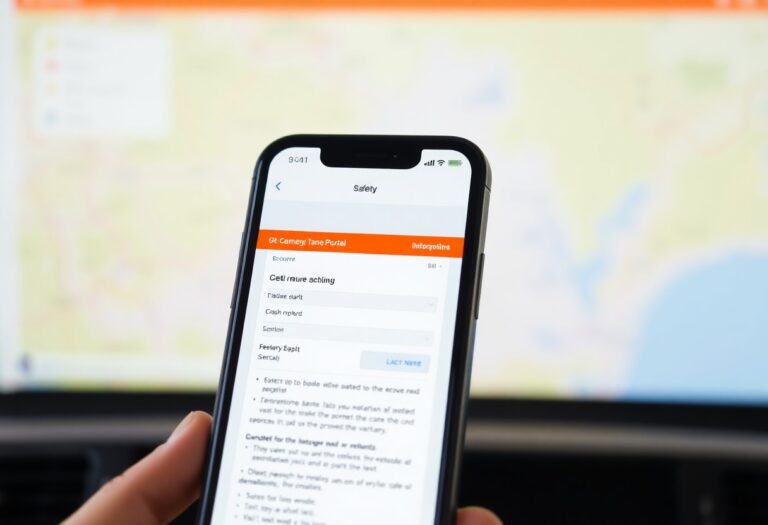Most drivers in Campbell County, Kentucky, will experience a car accident at some point, whether it’s minor or significant. Understanding the process of obtaining your car accident report can save you time and hassle, while ensuring that you have all the necessary documentation for insurance claims or legal matters. In this guide, you’ll learn the crucial steps to efficiently navigate the reporting process, from gathering information at the scene to requesting your report from local authorities. Let’s explore the details to help keep your experience as smooth and organized as possible.
Immediate Actions Post-Accident: A Critical Checklist
Addressing the aftermath of an accident swiftly can prevent complications. Start by evaluating the scene and acknowledging any injuries or damage incurred. Your immediate actions can significantly impact your well-being and the outcome of your case.
Ensuring Safety and Health
Prioritize your safety and the safety of others involved. If the accident causes significant debris, move to a safe location, away from traffic. Call emergency services for medical attention, keeping in mind that some injuries might not be immediately visible. Ensure that everyone involved receives proper care.
Documenting Essential Information
Gathering and recording the right details at the scene is necessary. Collect the other party’s contact and insurance information, vehicle details, and the names of any witnesses. Take photographs of the damage, the accident scene, and any relevant road conditions. These records will be invaluable for your insurance claim and any potential legal actions.
Efficient documentation goes beyond your basic notes. Utilize your smartphone to capture images and videos of the vehicles’ positions, street signs, and surrounding environment. These visual aids may help reconstruct the incident later. Also, jot down everything you remember about the accident as soon as possible, including the date, time, weather conditions, and any conversations that took place. Creating a detailed account can clarify events, protect your rights, and assist law enforcement and insurance companies in their investigations.
The Art of Filing a Police Report: Do’s and Don’ts
Filing a police report accurately is a defining step in documenting your car accident. Stick to the facts and avoid embellishing or altering details to fit a narrative. Be honest when describing the events, road conditions, and any statements made by others involved. Ensure you complete the report as soon as possible, as memories can fade quickly. This record will not only support your insurance claim but can also serve as a vital piece of evidence in potential legal proceedings.
Key Points to Include for Maximum Clarity
For maximum clarity in your police report, detail the date, time, and location of the accident, as well as weather conditions and road conditions. Document the names and contact information of all parties involved, along with any eyewitness accounts. Take note of vehicle details like make, model, year, and license plates. Providing an accurate diagram of the accident scene can also clarify positions and points of impact, aiding in overall understanding.
Common Pitfalls to Avoid
Avoiding common pitfalls can streamline the reporting process significantly. Incomplete information can lead to delays or denial of your claim. Don’t omit any facts—even if they seem minor—as they may hold the key to understanding the full context of the accident. Be cautious of admitting fault or making assumptions about the incident, as these statements could be held against you later.
Omitting important details or downplaying the severity of injuries can also cause headaches down the line. You might think that leaving out minor damage will simplify the situation, but this can backfire. Additionally, overemphasizing your own faults could be interpreted as liability. Stick to the facts and remain level-headed in your report. Taking the time to double-check your work before submission ensures you avoid these common missteps that could impact your case negatively.
Navigating Insurance Claims: What You Need to Know
Understanding the ins-and-outs of insurance claims can significantly affect the outcome after a car accident. Familiarity with your insurer’s processes and requirements streamlines your experience and increases the likelihood of receiving fair compensation. The task can seem daunting, but knowing the types of coverage available to you, along with how to effectively manage your claim, empowers you to take control.
Understanding Coverage Types and Requirements
Different types of auto insurance coverage exist, influencing how claims are processed. Key elements include:
| Liability Coverage | Covers damages to others when you’re at fault. |
| Collision Coverage | Pays for repairs to your vehicle after an accident. |
| Comprehensive Coverage | Protects against non-collision-related incidents. |
| Uninsured/Underinsured Motorist Coverage | Covers damages when the other driver lacks adequate insurance. |
| Personal Injury Protection (PIP) | Offers medical expenses regardless of fault. |
Knowing your coverage types and their requirements allows you to grasp what will be covered in an accident.
Steps to Expedite Your Claim Process
Following some strategic steps accelerates the insurance claim process. Gathering comprehensive documentation, including police reports, medical records, and photographs of accident damage, can substantiate your claim. Consistent follow-ups with your insurance adjuster demonstrate your commitment to resolving the claim efficiently.
Start by organizing all necessary documentation related to your accident to ensure you’re ready to hand over information quickly when requested. Make a checklist that includes items such as a copy of your police report, medical bills, repair estimates, and relevant correspondence with your insurance. Additionally, maintain open lines of communication with your insurance provider; regular updates can help you stay informed and engaged. Finally, being proactive and prepared will facilitate a smoother experience, allowing you to navigate the claim process more effectively. Prioritize timeliness and thoroughness to ensure that your claim is handled without unnecessary delays.
Legal Implications: When to Consult a Lawyer
Determining whether to consult a lawyer after an accident can shape the trajectory of your recovery. If your case involves serious injuries, significant property damage, or conflicts with insurance companies, accessing legal expertise can provide clarity and strategic insight. Navigating the legal landscape alone might lead to unfavorable settlements or missed compensation opportunities, so understanding when to seek help is crucial for your case.
Recognizing Red Flags in Your Case
Red flags in your case often include disputes over fault, ongoing medical issues, or an insurance company pushing you to settle quickly. If you find yourself dealing with these situations, it may signal the need for legal counsel. Additionally, repeated requests for information from your insurance company may hint at their intention to minimize your payout. Being alert to these factors can help you make informed decisions regarding your next steps.
Benefits of Professional Legal Guidance
Engaging a lawyer can transform the outcome of your case significantly. They bring to your situation an understanding of the legal system, as well as access to resources and negotiation skills that you may not possess. By securing professional guidance, you increase your chances of obtaining maximum compensation for your injuries and damages.
Having a professional attorney on your side not only alleviates the burden of navigating complex legal procedures but also instills confidence as you pursue your claim. They can effectively gather evidence, document your medical history, and negotiate with insurers on your behalf, ensuring you’re not short-changed in a potentially overwhelming process. In essence, enlisting expert legal counsel is an investment in your future recovery and peace of mind, allowing you to focus on healing rather than the intricacies of your case.
Resources and Support: Local Organizations to Reach Out To
Cabinet to local organizations can be invaluable after an accident. These groups provide various services, from legal advice to emotional support, guiding you smoothly through recovery. Organizations like the Kentucky Injury Prevention and Research Center and local victim support groups specialize in assisting individuals affected by accidents, offering a wealth of resources tailored to your specific needs.
Community Services and Hotlines
Local community services and hotlines in Campbell County can offer immediate assistance. For emotional support, you can reach out to crisis hotlines that provide confidential counseling. The Kentucky Division of Emergency Management operates a hotline that connects you with resources for food, shelter, and medical care, ensuring you’re not alone in navigating this challenging time.
Online Tools for Accident Report Assistance
Numerous online tools simplify the process of obtaining your accident report. Websites like the Kentucky State Police provide access to accident reports through their online services, ensuring you can retrieve vital documents without hassle. Additionally, various apps can help you track expenses directly related to your recovery, keeping everything organized and easily accessible.
Using online tools can significantly streamline your post-accident experience. For example, the Kentucky State Police accident report portal enables you to enter your details and quickly retrieve your report without waiting in long lines or dealing with paperwork. Other resources like accident claim checklists and budgeting tools offer a comprehensive suite of options to keep you informed and organized as you navigate the aftermath of your accident.
Conclusion
As a reminder, navigating the aftermath of a car accident in Campbell County, Kentucky, can be simplified by following a step-by-step reporting process. Ensure that you gather vital information, document the scene, and contact the appropriate authorities. By being thorough and organized, you can facilitate an effective claims process and protect your rights. Always consider consulting with a legal expert to guide you through any complexities. Your proactive approach will help you manage the situation more effectively.







